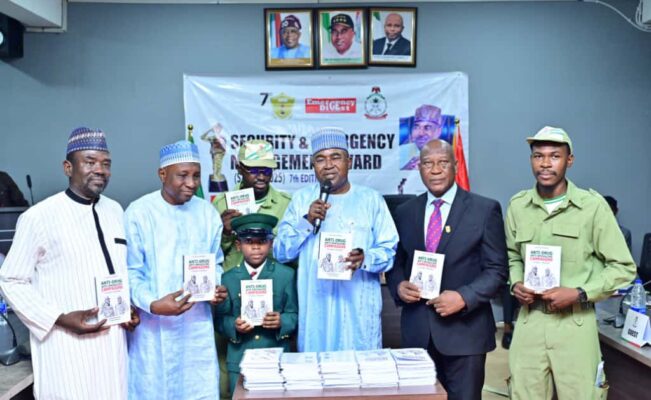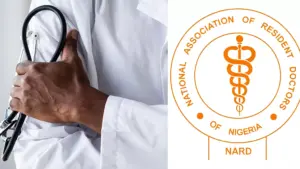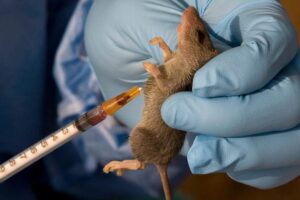The Chairman of the National Drug Law Enforcement Agency (NDLEA), Brigadier General Buba Marwa, has expressed the commitment of the agency to securing Nigeria from the menace of substance abuse and illicit drug trafficking.
Marwa expressed that the task of securing Nigeria from the menace of substance abuse and illicit drug trafficking as well as other social vices must be seen and treated as a shared responsibility by all stakeholders.
The NDLEA boss in his keynote address at the 7th Security and Emergency Management Awards and Conference (SAEMA 2025) hosted at the NDLEA’s national headquarters in Abuja on Wednesday 19th November 2025 assured that the Agency will build on the successes of the last five years during his second tenure with aggressive interdictions and compassionate treatment, rehabilitation and prevention programmes.
“The task before us—securing our nation—is a shared responsibility. The awards presented today are a reminder that all security agencies, emergency responders, and civil society partners are working towards the same goal: a safe, stable, and prosperous Nigeria.
“The NDLEA remains committed to this cause, determined to build on the successes of the past few years. We will continue to adopt a balanced approach—placing equal emphasis on Supply Reduction through aggressive interdiction and Demand Reduction through compassionate treatment and prevention.
“This menace demands a multi-sectoral response involving law enforcement agencies, traditional and religious leaders, civil society organisations, educators, the media, and the entire community. This is why I can’t but commend IMPR and its partners for this initiative as well as choosing “Drug Control and National Security: Innovations for a Safer Tomorrow” as the theme for SAEMA 2025”, he stated.
He said as an Agency with the mandate to curb illicit drug problems, the NDLEA under his leadership has responded to the challenge and pursued a two-pronged strategy.
According to him, “the first aspect of the strategy is Supply Reduction, which entails closing down the supply pipelines of illicit drugs. We do this through intelligence-led operations, interdictions, and international collaborations. By these means, we have intercepted tons of narcotics, dismantled cartels, and prosecuted offenders. From our borders to our airports and seaports, our officers remain resolute and execute their job without fear or favour.
“Gratifyingly, we are getting good results. In the first 10 months of this year alone, we have recorded over 16,304 arrests and have successfully prosecuted and secured the conviction of about 3,000 drug offenders with hundreds of cases ongoing in court. In the same vein, we have seized 4.5 million kilograms of illicit substances. We go the extra mile deep into the forests to locate cannabis plantations and destroy them. In these operations, we have destroyed 612.2864 hectares of cannabis farms within the same 10-month period.”
He added, “The second aspect of our strategy is Demand Reduction, which entails ensuring a near-zero demand for illicit drugs by users. Our demand reduction activities are built around the recognition that enforcement alone is insufficient to effectively curb the instances of drug abuse. First, people must be made aware of the dangers of using these illicit substances, and persuaded not to experiment with them no matter the circumstance. Second, those who are already users need to be cured of their dependence and weaned off the substances.
“To this end, we launched a social advocacy campaign, the War Against Drug Abuse, which we often refer to acronymically as WADA. This comprehensive, grassroots-driven initiative is designed to awaken every citizen, family, and institution to their role in the collective effort to stamp out the ills of illicit drugs in our society.
“Through WADA, we have entered schools, markets, places of worship, traditional institutions and communities to spread the message that drug abuse is not a private vice but a national menace. In 2025 alone, we have criss-crossed this country and reached nooks and crannies with our public awareness campaign. We have conducted over 3,765 WADA activities comprising public lectures, sensitisation visits and other engagements. Till today, officers of our 36 state commands, 14 zonal commands and 10 strategic commands engage in weekly WADA activities.”
“The other part of our demand reduction strategy is treatment, rehabilitation, and reintegration of drug users. These are very important activities that must balance our offensive effort. To simplify its importance, I usually reference the law of demand and supply. Where there is no demand, there will not be supply. If we wake up tomorrow and no one is demanding cocaine or cannabis, the market will dry up and the suppliers would be out of business. But that cannot happen unless you treat those who have become dependent on the substances and need their fix regularly.
“The NDLEA runs 30 rehabilitation centres across the country, offering medical treatment, counselling, and reintegration support for those struggling with addiction. We are expanding these facilities and partnering with state governments, NGOs, and international allies to ensure that recovery is possible and accessible,” Marwa expressed.
He thanked the event organisers—Image Merchants Promotion Limited, the Centre for Crisis Communication, the Civil Society Legislative Advocacy Centre, and the International Emergency Management Society—for choosing NDLEA to host this year’s ceremony, and for the honour they continue to bestow on institutions and individuals working tirelessly to safeguard Nigeria.
In his remarks at the event, the Executive Director of Civil Society Legislative Advocacy Centre (CISLAC), Auwal Musa Rafsanjani commended Marwa for providing good leadership for NDLEA “to redeem and reform our country from people that are determined to destroy our young people. His work, you can see it every day. Every day we hear drugs being intercepted and taken out from the hands of the public.
Rafsanjani said, “The incredible amount of work that Gen. Marwa is doing to this country, I don’t think people have even sat down to reflect. Because if you see the danger that our young people have been going through as a result of taking drugs, it’s incredible. Equally important, we know that there’s no way you can also detach issues of drugs abuse with the issues of security in this country.”
He said the award ceremony was “a recognition to the people that have been making sacrifices in this country. A lot of security personnel are making huge sacrifices for this country, for us to live in peace. Sadly, many of them have died and not much appreciation from the public.”
“So for us, as an organization, we appreciate the tremendous work that our security personnel are doing in this country. And we will continue to support every effort to boost their morale, to give them the necessary credible information so that they can continue to make this country safe and better for us.
“Both at the level of Amnesty International, which I chair the board, Transparency International, which I head, Civil Society Legislative Advocacy Centre, CISLAC, which I also head, we’re all in this solidarity and support to the tremendous effort that our security personnel are putting in this country. And we will continue to support them and we will continue to ensure that we urge other Nigerians to also do the same,” Rafsanjani concluded.
Others who spoke in same light include the Chairman, Centre for Crisis Communication, Gen. Chris Olukolade (rtd); Chairman, Image Merchants Promotion Ltd, Prof Sule Yau Sule and the MD/Editor-in-Chief, PRNigeria, Yushau Shuaib. The event also witnessed the presentation of a book: Anti-Drug, Anti-Smuggling Campaigns A Corpers’ Chronicle written by two Youth Corps members: Arafat Abdulrazaq and Tahir Ahmad.
Highpoint of the event was the presentation of ‘Outstanding Personality of the Year’ award to Marwa and ‘Outstanding Crisis Communicator of the Year’ award to NDLEA’s Director of Media and Advocacy, Femi Babafemi, while other agencies honoured include the Nigerian Army, Airforce, DSS, EFCC, ICPC, and NCoS among others.





